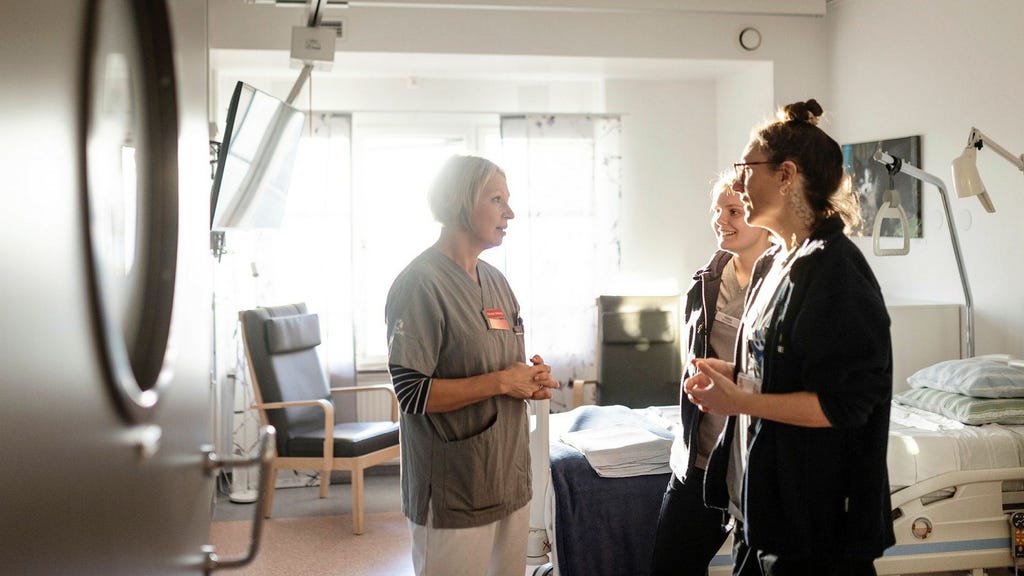The planned implementation of the controversial Millennium electronic health record (EHR) system, known as SDV in the Skåne region of southern Sweden, has been postponed. Originally slated for a March launch, the rollout has been pushed back to after the summer, bringing a wave of relief to healthcare professionals in Ystad. Staff at Ystad Hospital, who had a chance to test the system in November, expressed strong concerns about its functionality and usability. Dr. Christel Wihlborg, a senior physician specializing in palliative care, described the system as antiquated, cluttered, and requiring excessive navigation to access information readily available in the current system. The news of the postponement was met with jubilation, lifting a significant ethical burden felt by the staff even before the system’s implementation.
The Millennium EHR system, intended to streamline patient information by consolidating numerous existing systems into one platform, experienced a disastrous launch in the Västra Götaland region in November. Just days after its debut, reports of serious flaws and usability issues flooded in from healthcare workers. The system became the subject of multiple complaints filed with various regulatory bodies, including the Swedish Work Environment Authority, the Justice Ombudsman, the Swedish Authority for Privacy Protection, the Medical Products Agency, and the Health and Social Care Inspectorate (IVO). The Västra Götaland region swiftly halted the rollout just three days after its launch, acknowledging the severity of the problems. This debacle further fueled the apprehension surrounding the planned implementation in Skåne.
The staff at Ystad Hospital cited several concerns regarding the Millennium system, highlighting not only the widely discussed implementation challenges but also the system’s inherent complexity and time-consuming nature. Dr. Wihlborg emphasized that while healthcare professionals are adaptable and capable of learning new systems, the Millennium platform is excessively cumbersome. She underscored the need for an EHR system that enhances efficiency and frees up time for patient care, rather than hindering it. The current system, in their view, is perfectly adequate, prompting questions about the necessity of a switch.
The cumbersome and unintuitive nature of the Millennium system poses significant risks to patient safety, according to Dr. Wihlborg. It diverts valuable time away from patient care, exacerbating the existing strain on an already overburdened healthcare system. The ideal EHR system, she argued, should streamline workflows and maximize the time spent directly with patients. She and her colleagues expressed bewilderment over the decision to adopt a new system when the existing one functions effectively. Dr. Wihlborg directed inquiries about the rationale behind the change to the regional management and politicians. While consolidating disparate systems across hospitals and primary care may be a factor, viable alternatives exist that have proven satisfactory in other regions.
Region Skåne’s director, Lars-Åke Rudin, acknowledged the need to learn from the Västra Götaland experience, emphasizing the importance of thorough testing and ensuring the confidence of healthcare staff in the system’s functionality. He stressed the priority of creating a system that empowers staff and fosters a sense of security in its efficacy. This statement echoes the concerns raised by healthcare professionals, who have been vocal about the need for a user-friendly and efficient system that supports, rather than hinders, their work.
The postponement of the Millennium rollout in Skåne offers a glimmer of hope for the staff at Ystad Hospital. Dr. Wihlborg and her colleagues express cautious optimism that the delay will become permanent, allowing them to continue using their current system. They see the postponement as a victory for patient care, ensuring that valuable time is dedicated to patients, rather than grappling with a cumbersome and inefficient EHR system. The hope remains that the region will seriously consider alternative systems that have proven successful elsewhere, prioritizing the needs of healthcare professionals and the safety of patients.














